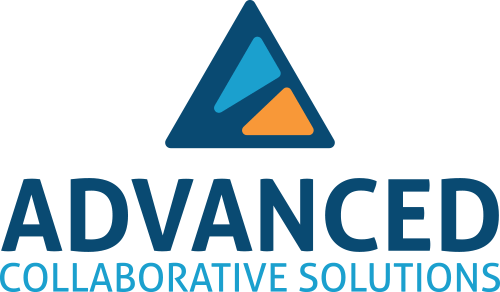High-Impact Instructional Leadership Strategies that Impact Student Learning

By: Steve Ventura
The Many Hats of an Instructional Leader
From the moment the bell rings, an instructional leader is pulled in many directions – throwing together a coverage plan for a teacher who is unexpectedly sick, meeting with a parent who has urgent concerns, supporting a struggling student, and the list goes on. While immediate needs will arise, a leader who has internalized high-impact instructional leadership strategies will remain steadfast in their ultimate goal – supporting educators as they work to achieve exceptional results with their students. But what are the highest impact instructional leadership moves? Read on for seven leadership behaviors that, when continuously implemented and refined, are sure to pay off in dividends with the educators and students you serve.
Seven Instructional Leadership Behaviors
-
Conducting classroom observations and providing feedback. Each of your educators should see you in their classrooms at least once every two weeks, ideally once a week. When done intentionally, quick-hit observations can be much more impactful than typical bi-annual formal observations. Go into classrooms with a keen eye on agreed-upon instructional practices or the individual teacher’s area of development, capture notes for a brief follow-up (which ideally occurs within 48 hours of the observation), and loop back later in the week to check for implementation. This iterative coaching process promotes incremental teacher development, builds trust, and increases your visibility in the building.
- Leading or attending meetings focused on improving and coordinating instruction. In our book Achievement Teams: How a Better Approach to PLCs Can Improve Student Outcomes and Teacher Efficacy, research indicates, in regards to specific leadership behaviors that have the greatest influence on student achievement, that promoting and participating in teacher learning and development is among the most important. Ideally, your school schedule allows for common planning time for teachers in the same grade-level (elementary) or content areas (middle and high school). Identify and coach the formal or informal teacher leaders on the team so that you are developing their instructional expertise and slowly “passing the torch” to them to lead these meetings. The primary focus of any PLC meeting should be reviewing recent student work and achievement data, identifying effective instructional strategies to address gaps, then circling back to check on progress.
- Promoting a school culture that is supportive, safe, and teeming with shared values. Quite frankly, this is step one to set the foundation for a high-achieving school. Focus your first six weeks of school on student and staff culture, school-wide procedures, and investing students in their academic goals.
- Cultivating resilience among staff and students. Every school year is marked by highs and lows. If you can instill a sense of resilience in your students and educators, individuals will see these highs and lows as equally beneficial. Ask your school community to get curious about “failures” and what lessons they can take away from them. As the FDR quote goes, “A smooth sea never made a skilled sailor.”
- Building relational trust so that collaboration can occur under the most positive conditions. Relational trust is a critical ingredient in the recipe for school success and grows incrementally through day-to-day interactions, exchanges, and responsibilities. Read this comprehensive guide from ASCD to learn concrete strategies for building relational trust, where author Barbara Schneider defines this critical component as “the connective tissue that binds individuals together to advance the education and welfare of students.”
- Monitoring progress and celebrating success. End-of-term grades and state testing performance might mark the finish line at the conclusion of the school year, but what are smaller incremental goals along the way? Perhaps your school has bi-weekly standards assessments or mid-quarter benchmarks. Identify regular opportunities to monitor progress, keeping in mind that there is immense motivating power in celebrating small wins.
- Reflecting on results to learn what was accomplished. Leverage your weekly or daily PLC meetings to review academic results. Some guiding questions to consider are:
- What strengths and gaps do the assessment results show?
- What skills (verbs) and concepts (noun and noun phrases) were achieved from the learning target, and what still needs to be learned?
- Who did we teach effectively, and who still needs help?
- Which instructional strategies were effective? Which ones were less effective?
Check out our blog post about short-cycle assessments to learn more about this process.
Reflect to Improve
Leaders must understand that the most difficult, negative and sometimes toxic people in the school will inevitably try to position themselves as the most important people in the school. And while great leaders would never diminish people by ostracizing them, they also remember to make decisions based on the best people, not your most resistant people. This way we ensure that our superstars will never be marginalized.
The most effective leaders are reflective leaders. Based on the seven instructional leadership behaviors above, ask yourself:
- What behaviors do you engage in consistently?
- Where may you be falling short?
- Did you note some areas where you may be spending too much time? Too little?
- Do I pour my attention and passion into the people I serve?
Try some honest self-reflection and audit the way you currently spend your time, then adjust accordingly. Try tracking how much time you spend on these seven critical behaviors each week and reflect on your progress after two months or so. Use our free downloadable time reflection log journal and identify strengths, areas of growth, and how to better allocate your time to be the best instructional leader you can be.
Achieve Your Goals with Achievement Teams
As educators and instructional leaders for decades, we know the immense responsibility that comes with your role. To support you in creating resilient, high-achieving educator teams, our book Achievement Teams: How a Better Approach to PLCs Can Improve Student Outcomes and Teacher Efficacy will guide you on your journey toward success!

